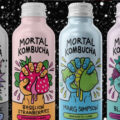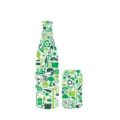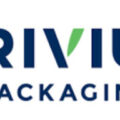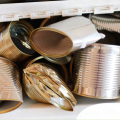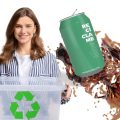The enormous environmental pressure on companies to meet the sustainability targets set by the different states is already giving rise to false or exaggerated practices about their environmental practices and results. Others, for example, silence their data if they are far from the guidelines. This phenomenon is called greenwashing, which can lead to consumer distrust, as Suzanne Shelton, senior partner at Shelton Group, an ERM Group company, said recently at the SPC Advance event in Chicago last week.
Consumers are also witnessing an infoxication or over-information on labels about the sustainability of packaging. In other cases, the lack of a single definition of “sustainable “sustainable”, contribute to a bit of a mess, both from the perspective of brands and consumers, according to various sources at the recently held Recycling Summit in Atlanta in September.
The criteria that mark a brand as sustainable are varied. Consumers talk as much about packaging as they do about responsible sourcing and renewable energy.
According to NielsenIQ’s 2023 CPG sustainability report, confusing or unavailable information was the third largest barrier consumers reported that prevented them from adopting a more sustainable lifestyle, behind cost and lack of availability of sustainable products.
Kasra Eskandari, associate director of packaging sales at Nielsen IQ added that CPGs (Consumer Packaged Goods ) flood their packaging with sustainability messages and this sometimes makes it difficult for consumers to decipher the true meanings and perhaps more important data such as the carbon footprint of the products is missing.
Recycling is one of the main areas of confusion. The term “recyclable” appeared in more than 1,200 of the 1,400 product categories NielsenIQ examined in 2023. But, as with sustainability, various people have different perceptions of what recycling or recyclability means.
“There’s an interesting disconnect: as scared as we are about climate, what we understand is packaging, recycling and reuse.” Shelton said. And part of that is because that’s the message we’ve been giving them.”
As for recyclability messaging, Case described disparities even with the definition of the term recyclable. “It’s no longer simply acceptable to say we can collect it for recycling if it’s not actually recycled into new products,”, he said.
Numerous speakers at recent conferences highlighted the decline in consumer faith in recycling, both nationally and locally, following years of news reports that various parts of the system are “broken.” According to a recent survey Shelton’s company conducted of U.S. consumers, 32% of respondents no longer believe that the items they put in a recycling garbage can are recycled; That’s up from 14% just four years earlier.





